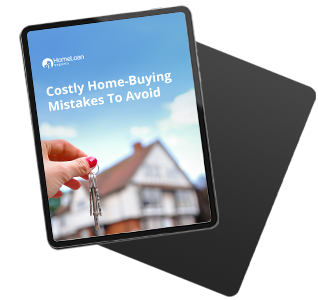Are there unexpected costs to consider when buying a house?
Yes, there are!
There’s more to buying a house than the monthly payments you’ll be required to make to repay the principal and interest on your home loan. Being aware of all the costs of home-buying before you begin house hunting will help you set a realistic budget.
Most first home buyers know that buying a house can be expensive, but it’s not just the property’s purchase price that you need to budget for. You’ll also need to allow for all the other home-buying costs like stamp duty, conveyancing fees and insurance.
You can use our property cost calculator to determine how much you should expect to pay when you buy a house.
So what exactly are the costs?
Here are the most common ones you should be aware of.
Initial one-off purchasing costs
Stamp duty
Stamp duty – also known as the transfer of land duty – is a tax you may have to pay when buying a property. Australian states and territories have their own rules for calculating stamp duty – and some are a little more complex than others.
For Australian residents, the exact amount of stamp duty depends on several factors, including the property’s location and whether you’re eligible for any concessions or exemptions.
Stamp duty may cost you hundreds of dollars – or it could cost tens of thousands. Fortunately, first home buyers are eligible for stamp duty exemptions and concessions.
To work out the estimated cost of stamp duty for your scenario, use our stamp duty calculator.
8 Costly Home-Buying Mistakes To Avoid
The Most Common Homebuying Mistakes That Could Cost You A Fortune

Disclaimer: Over the next few days, you’ll receive additional guides to help you on your homebuying journey. Occasionally, you’ll receive carefully curated home-buying tips, offers & schemes, and news articles. You can unsubscribe any time you want. View our Privacy Policy
Home loan set up fees
Lenders mortgage insurance
Generally, unless you have saved up a deposit of at least 20% of the lender-assessed value of the property, you may need to pay for lenders mortgage insurance (LMI).
The amount of LMI you pay depends on your loan to value ratio (LVR) and the amount of money you borrow. Different lenders and insurers have different rates for calculating LMI. When you are talking to lenders about home loans, you could ask them for an estimate.
As a very rough guide, LMI could cost over $10,000 on a home loan of $500,000 for which you have saved a $50,000 deposit.
Loan establishment fees
Loan application or establishment fees are the loan application costs associated with setting up the loan.
Some lenders will ask you to pay the fees upfront when you apply for a home loan. Note that some lenders will waive this fee under certain circumstances, so it’s worth finding out the lender’s policy regarding this fee.
The application fees are generally around $500-600, though they can sometimes be more than $1000, depending on the loan and lender.
One-off property costs
Building inspection
You may want to hire professionals to do a pest and building inspection to check for any house problems upfront.
A building inspection will give you peace of mind that the property is structurally sound and ready to move in. A pest inspection could also save you from trouble later on.
Prices can vary from business to business. You may be able to get a building and pest inspection done for around $600.
Learn more about how you can get a building inspection and a pest inspection.
Conveyancing or legal fees
Conveyancing and legal fees are the costs related with engaging a conveyancer or solicitor when buying a house.
While it is possible to settle the legal aspects of buying a house yourself, it’s generally suggested that you engage a conveyancer or solicitor to prepare the documents for you and provide advice.
The estimated costs of legal fees are around $1800, but can be significantly more if the ownership structure is complex.
Engainga conveyancer could help first-home buyers avoid mistakes that could cost far more in the long run than the conveyancing fee.
Moving costs
Don’t forget to factor in the cost of moving into your new home!
If you need to enlist the help of removalists, this could add hundreds of dollars to your costs – or perhaps even thousands of dollars when it comes to moving the contents of a large family home.
Yearly Property Maintenance and Mortgage Costs
Your mortgage repayments will be your biggest ongoing expense, however there are other annual costs you’ll need to be aware of.
Home and contents insurance
It’s a good idea to insure your new home from the moment of settlement (or ideally before).
Insurance provides cover in the event of loss or damage to your property. It’s generally considered to be worth the cost, even if it’s just for the peace of mind. In fact, some lenders may prefer you to have home insurance before the settlement occurs.
Insurance costs can differ depending on factors like the location, type of property and type of policy cover. You can expect to pay anything from hundreds of dollars to over $1,000 for an annual policy.
Council and utility rates
Council and utility rates are the fees you’ll need to pay the vendor for council or water rates after purchasing the property.
The vendor will have paid any rates owing to the council – generally until the end of the quarter – and they’ll simply add your portion of that amount to the purchase price.
Do you need a home loan?
As expert mortgage brokers, we can help make the settlement process smooth and simple by organising a simultaneous settlement.
Please call us on 1300 889 743 or complete our free assessment form if you’re planning to buy your property soon.
